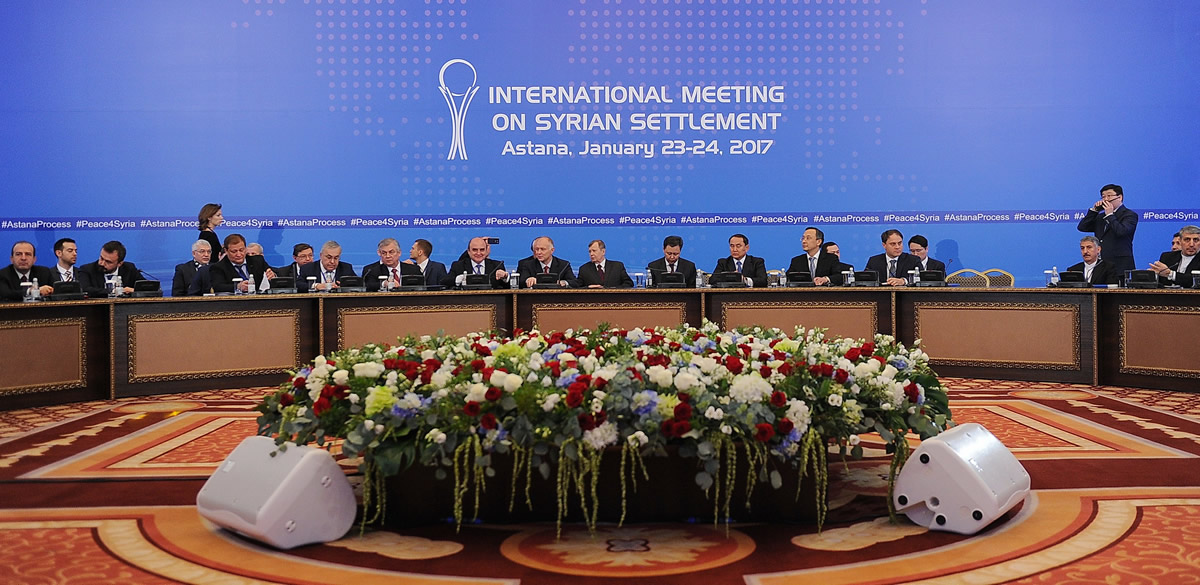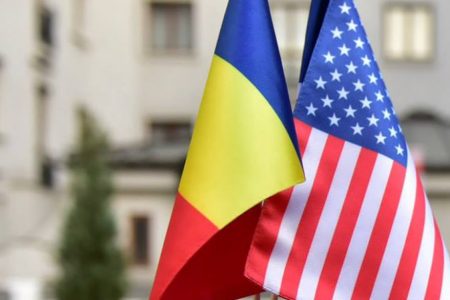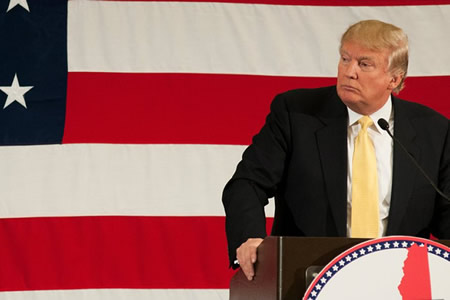Astana talks did not bring any new solution to the Syrian crisis. It was merely an extension of cease fire. The different parties agreed to continue negotiations in Geneva. The question is: what will be the fate of Syria?
In order to know the fate of Syria it is important to determine the fate of Assad. Contemporary history has shown that dictators who have killed half a million of their people are bound to get ousted and to be put on trial. However, this is not necessarily the case in the Arab World. Omar Al Bashir has killed half a million of his people and his Janjaweed paramilitary have conducted mass rapes, in addition to pushing millions of citizens to starvation in Darfur. A criminal of war by excellence, yet he managed to keep his seat as a president of Sudan at the expense of dividing the country. He could no longer rule the territories shattered by his atrocities. In parallel, if Assad is to stay that means dividing Syria. To start with, Assad does not have control on the pro-Assad forces. These forces are operating as a loose coalition of independent militias more than a unified army with a central control and command. The so called regular Syrian army on which Assad has authority represents an insignificant faction of the military actors on the ground. Lacking cohesion and legitimacy, Assad and his paramilitary can repress the Syrian people for a while but they will never be able to bring order and stability to the entire country. Therefore, if Assad would stay in power, this means the division of the country and the creation of an Alawite state overlooking the Mediterranean. Division of Syria means trouble for Turkey and Iraq. The Rand report recently published stressed on the need to keep Syria united for regional security.
Moreover, the refugees who fled the country to escape his cruelty and the atrocities of his allies will not return to their homes as long as he is in power. And the families of the half million he has killed will not have a clear mind as long as he is ruling Syria. Living in fear and with a strong desire for revenge, they will be prone to create an insurgency the moment an opportunity arises.
Additionally, Assad represents an issue on which the Russians and the Iranians, the main players in Syria greatly differ. Iran will never give up on Assad as he is their main man in the region. Assad regime is an extension of their ideological project for the region. Syria under the rule of Assad represents a natural bridge to Hezbollah, the apple of the eye of the Iranian revolution. However, the Russians do not have an ideological outlook on Syria. They interfered to help Assad in order to carve a regional role for themselves in the midst of American retrenchment and not with the purpose of saving his regime.
Assad was losing despite the aid from his Iranian allies and their militias. He could not control more than 15% of the total area of the country. Russia came to his rescue when he was about to collapse. Fighting terrorism was the pretext Putin used to justify his involvement.
The Russians know that Assad cannot rule anymore. Now, that they extracted from him concessions for their bases as well as trade contracts, he is just a card they can use to negotiate with the international community and the Syrian opposition. Unlike the Iranians, they are not ready to incur additional costs to keep Assad in place. Syria is of prime importance to the Russians as it is their only foothold on the Mediterranean. Their aim is to have a stable country to host their bases with the least cost possible. Additionally, oil might present another point of contention between the Iranians and the Russians. Assad has agreed with Iran on a pipeline to transfer Iranian oil to the Mediterranean. From there, the oil gets shipped to Europe. This puts Iran in direct competition with Russian gas in European markets.
Though the Russians are in position of power and they were able to turn the tide of events, on the ground, the Iranians and their militias are players that cannot be ignored. The question is: Will Iran confront Russia, if it has to? Also, what is the balance of power between Russia and Iran on the ground? Will Russia be able to coerce Iran and its militias to withdraw from Syria in order to comply with what has been agreed previously in Geneva which is the departure of all foreign forces?
Here the US can play an important role of power balance. The US has kept the role of the spectator facing the Syrian crisis. American indecisiveness complicated the issue instead of presenting a solution to it. Now it is the time for the US to put issues in order by exercising soft power and by using its influence among the international community.
Russia is on the brink of bankruptcy. As large as it is, Russia has a size of the economy similar to a country as small the Netherlands. The air campaign has drained Russia. This is why they wanted to cut their fight short. They intensified the bombing and looked at what they can get in return for their adventure. They are not willing to incur more costs. This is where lifting the sanctions can be a good positive incentive to entice Russians to bring a sustainable solution to Syria. The Trump administration is starting on a positive note with the Russians and can use diplomacy to convince them that keeping Assad means instability and increased costs. The Russians will have to choose either siding with the Iranians and bearing the sanctions or breaking their pact with the Iranians and insuring a stable Syria. The opposition as well as the international community should give assurances to Russia that the new government will respect previous contracts at least for a period of ten years.
Iran’s interest is to keep its force in Syria to make sure it still has influence on the ground and to keep the bridge to Hezbollah in Lebanon. In Syria, Hezbollah as well as other pro-Iran militias have started driving Sunni inhabitants out of strategic cities such as Homs, Qosair and Aleppo and replaced them with Shia Lebanese, Iraqis, Afghanis and Pakistanis, in order to maintain influence on the grassroots level, even if there is a regime change in Syria. Here the international community and the Lebanese government, with the proper encouragement, as Lebanon hosts one million and a half refugees, should insist that the refugees go back not to safe zones, but to where they came from in the first place. This will prevent any sectarian sorting Iran is trying to do.
Though Iran would like to keep Hezbollah its main ally in Syria this represents a catch 22 for both Iran and Hezbollah. Hezbollah is a wholly owned subsidiary of Iran. It will never take any action independently from the latter. However, today Lebanon hosts one million and a half refugees. Most of those have been expelled from areas under the control of Hezbollah. Those will not return as long as Hezbollah is in control of their land. On the other hand, the presence of those refugees, mostly Sunnis, in Lebanon, represents a danger to Hezbollah. The refugees can create a demographic imbalance in Hezbollah’s disfavor. Though, there has not been a demographic census in Lebanon since the sixties, voters’ rolls show that the Sunni Lebanese slightly outnumber their Shia counterparts. Therefore, a withdrawal from Syria would be welcomed by Hezbollah, of course if approved by Iran.
Syria cannot be run anymore by a centralized government, similarly to the time it was under brutal dictatorship. A proper provisional decentralized government in Syria should include the local councils as they represent the fabric of the Syrian society. They are non-sectarian and represent the civil alternative. In this respect, the European Union should offer them the support they need to properly run their communities. On the other hand, peace keeping forces should maintain security and stability. It is important to engage with the Arab League and the Organization of Islamic countries to donate peacekeeping forces. Here, extra caution should be given to countries such Iran and Iraq that were involved in the war. On the other hand, Iran should not be sidelined and should be allowed to be part of any proposed solution in order to save face. However, the international community should be careful that the troops Iran and Iraq donate are not Trojan horses aiming at creating instability in the country. Therefore, those troops should be deployed jointly with other neutral countries troops. With decentralized government run by the local councils and peace keeping forces, Syria can be rebuilt. Therefore, when we talk about a Marshall plan, the local councils are the proper mechanism though which to conduct reconstruction and to provide basic services to citizens. However, the future of Syria now highly depends on the agreement between global and regional players. The country is at a crossroads. If a proper solution is devised it will flourish as a democracy and a civil state otherwise the end of the war might mean a new chapter of sectarian conflict or a new phase of brutal dictatorship.
As I conclude this article tears come to my eyes. Are Syria’s and Arab’s fate to live forever under the rule of brutal dictators and murderers who do not hold any value for human life? Will we ever see the dawn of freedom?




